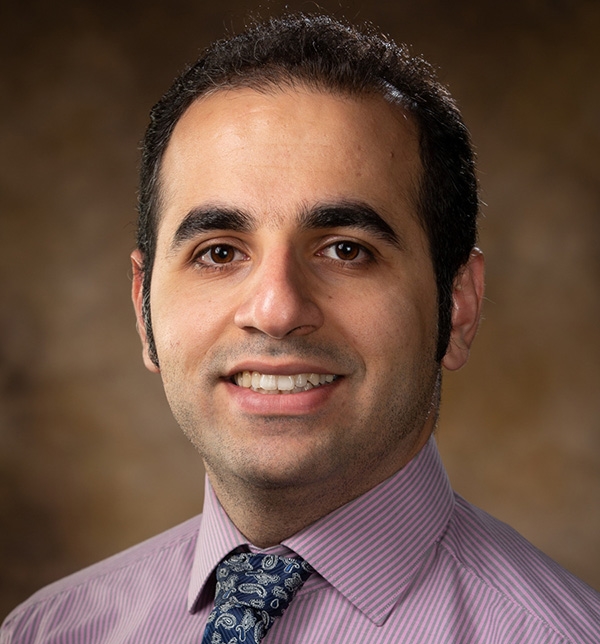Researchers Develop New Method for Making Inorganic Catalytic Nanoparticles
Chemical engineering researchers at the University of Arkansas have developed a method to synthesize inorganic nanoparticles using inhomogenous, or impure, biomaterials, a process that could decrease the cost of pharmaceutical production.
The new approach circumvents the need for expensive peptide purification from protein sources and thus challenges the conventional method for producing bio-templated nanoparticles. Used for making molecules for pharmaceuticals, the biological nanoparticles also have catalytic properties for potential use in the production of ammonia and other industrial chemicals.
"The major question we answered was the necessity of purity of peptides used for nanoparticle preparation," said Imann Mosleh, doctoral student and graduate research assistant in the Ralph E. Martin Department of Chemical Engineering. "Our results showed that the level of purity did not affect the nanoparticle growth."
Inspired by biological systems that order structures naturally, Mosleh fused a peptide called Pd4 to an active protein, Green Fluorescent Protein, to prepare palladium nanoparticles. Testing and subsequent characterization confirmed synthesis of a highly ordered material that could be used in lieu of an expensive pure peptide.
"We showed that the synthesized nanoparticles went through the same nucleation and growth pathway as pure peptide nanoparticles," Mosleh said.
The method developed by Mosleh could lead to the production of biologically inhomogenous and unpurified, protein-templated nanomaterials at two orders of magnitude less that the cost of convention methods.
Mosleh conducted the research as his dissertation project for a doctorate in chemical engineering. His advisor was Bob Beitle, professor of chemical engineering and associate vice chancellor for research and innovation. The study was published in Materials Letters as a "featured letter."
Topics
Contacts
Imann Mosleh, doctoral student
Ralph E. Martin Department of Chemical Engineering
479-575-4951,
imosleh@uark.edu
Matt McGowan, science and research communications officer
University Relations
479-575-4246,
dmcgowa@uark.edu
Headlines
Honors College to Host Pulse Discussion Around Baltimore Bridge Accident
The Honors College will present a panel of faculty with expertise on engineering, labor history and supply chain to discuss the impact of the accident at 3:30 p.m. Wednesday, April 24, in Gearhart Hall, room 258.
Entrepreneurial Path Follows Tradition and Family Legacy
When Blanca Ruiz made a pivotal career decision to pursue a newfound passion rooted in a family legacy, she took advantage of training through the U of A Small Business Center.
'Peace' Sculpture by Native American Artist Dedicated at Adohi Hall
The 33-inch high bronze sculpture, created by Native American artist Retha Walden Gambaro in 1997, features a dove in two hands and titled simply "Peace," was donated by Richard Anderson and John Berry.
Cyber Careers with University SFS Alum Calvin Franz on April 25th
Alumnus Calvin Franz will be joining the CyberHogs RSO to talk about what it's like post-graduation as a cybersecurity developer in the public sector at 5 p.m. Thursday, April 25, at J.B. Hunt Center room 0216.
Take a Study Break in Mullins Library
As finals approach, the University Libraries have teamed up with partners across campus to offer study breaks in the east lobby of Mullins Library that are free and open to all U of A students.





